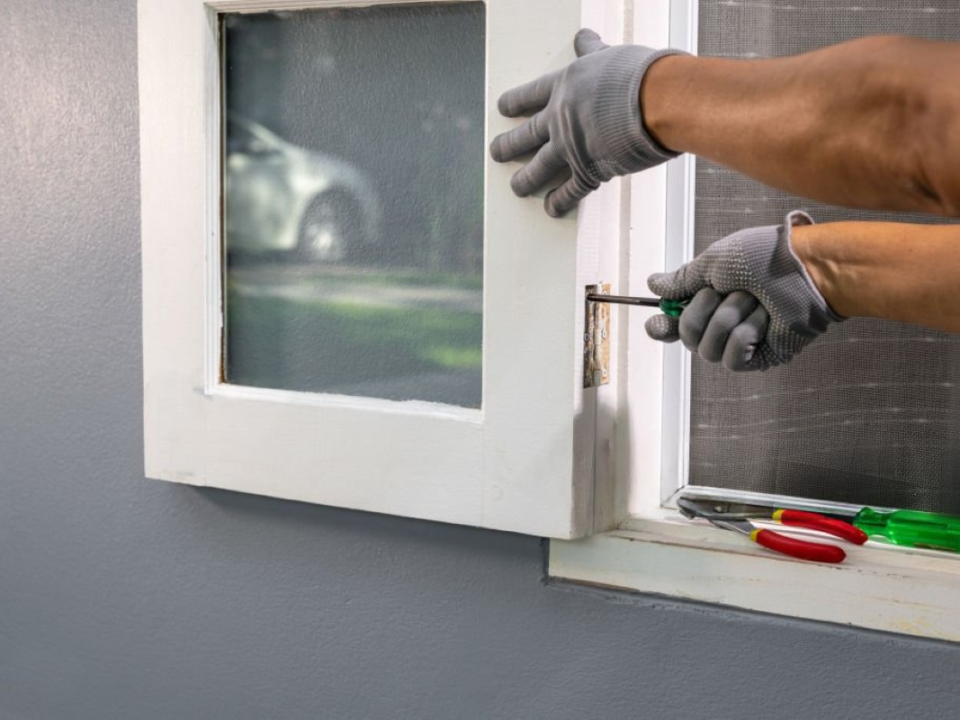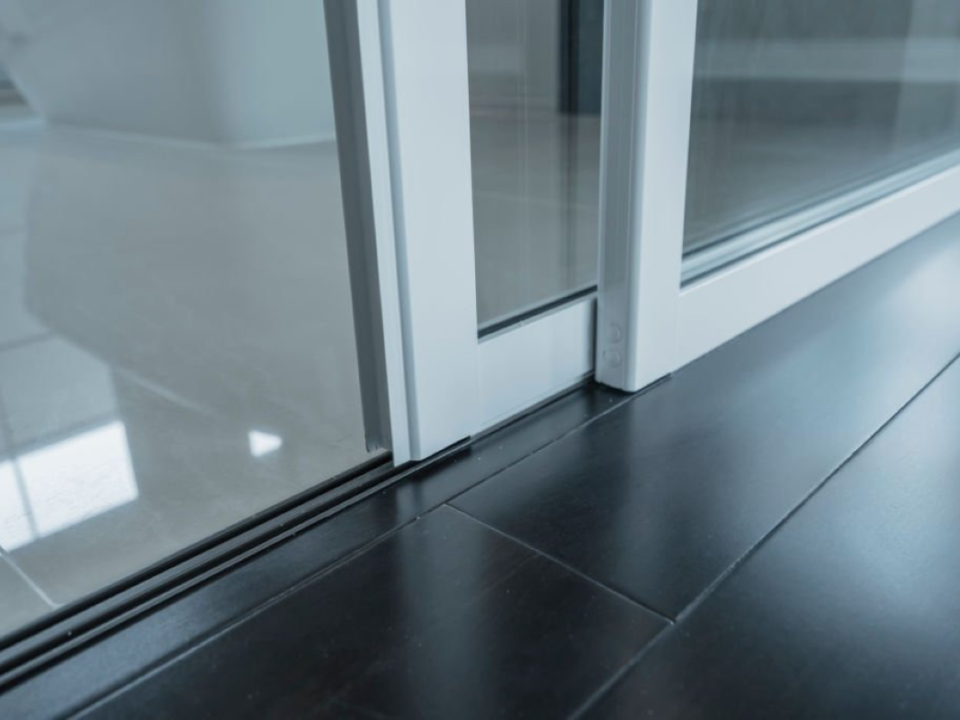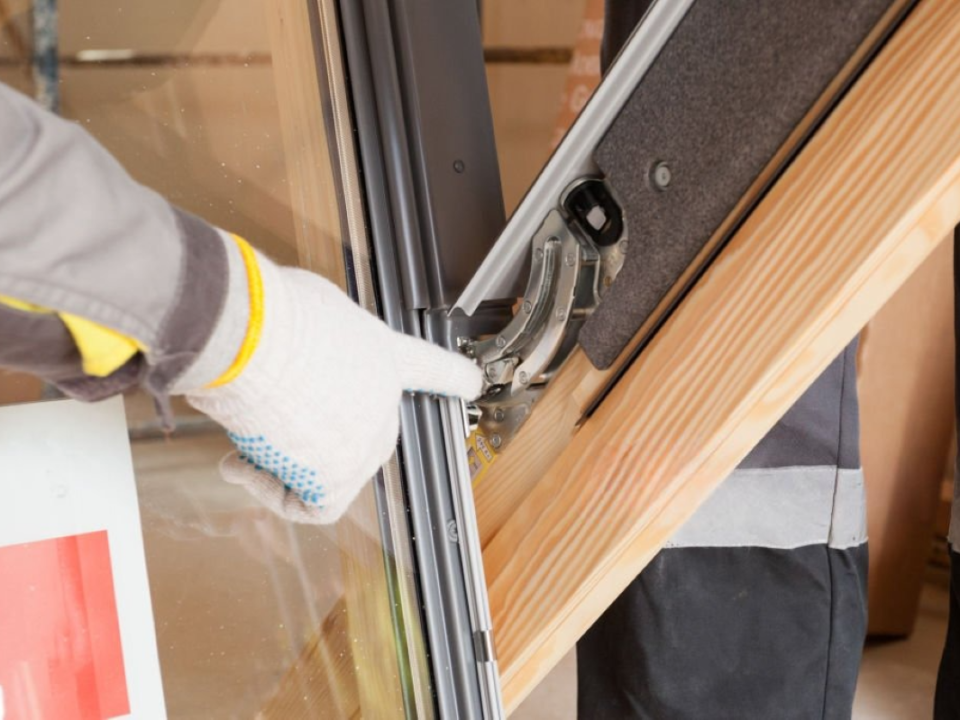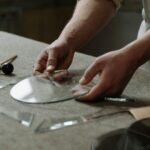
Custom Cut Glass: Everything You Need to Know
August 2, 2024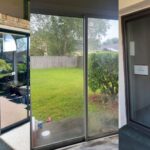
DIY vs Professional Patio Door Glass Replacement
August 10, 20247 Signs You Need Sliding Door Glass Replacement
Sliding doors are a beautiful and practical feature in many homes, providing natural light and easy access to outdoor spaces. Whether you have a patio door, balcony door, or a standard sliding door, it’s important to keep the glass in top condition. Over time, however, these doors can experience wear and tear, leading to cracks, scratches, fogging, or even complete breakage. When these issues arise, replacement glass for sliding doors might be necessary to restore both function and beauty.
If you’re wondering whether it’s time for a replacement, here are seven signs you need sliding door glass replacement. When you’re ready, professional services like 24/7 glass repair can help restore your doors to their original condition, ensuring safety, security, and aesthetic appeal.
1. Visible Cracks or Chips in the Glass
One of the most obvious signs that you need replacement glass for sliding doors is when you notice visible cracks or chips in the glass. Even minor damage can weaken the integrity of the glass, and if left unattended, it could worsen over time. A cracked sliding door is not only a safety hazard but can also affect the door’s functionality. If your sliding patio door has cracks or chips that you can’t repair easily, it’s time to consider a full glass replacement.
The good news is that 24/7 glass repair services are available to address this issue quickly, ensuring that your home remains secure and the aesthetic of your sliding door is maintained.
2. Difficulty Sliding or Opening the Door
A sliding door that no longer slides smoothly is a common problem. While this issue is often associated with the rollers or tracks, it can sometimes be caused by a problem with the glass itself. If the glass is too heavy, cracked, or has warped, it can hinder the door’s movement.
In such cases, replacement glass for sliding doors might be necessary to ensure that the door operates properly. A replacement will help restore the sliding action, allowing the door to move smoothly again without the strain or difficulty of trying to force it open.
3. Foggy or Cloudy Glass
Over time, the seals around your sliding door glass can break down, leading to condensation between the panes. This results in foggy or cloudy glass, which not only obstructs your view but also reduces the energy efficiency of your home. When the seals around the glass are compromised, the glass can lose its insulating properties, leading to higher energy bills as your HVAC system works harder to maintain the desired temperature inside.
If you notice persistent fogging or condensation that doesn’t clear up, it’s time to replace the glass. Replacement glass for sliding patio doors can help restore your view, improve energy efficiency, and prevent the buildup of moisture that could lead to mold or mildew.
4. Broken or Damaged Seals
In addition to fogging, a broken seal around your sliding door can cause drafts, temperature fluctuations, and water leakage. A compromised seal can let in air from outside, making your home less comfortable and causing your energy bills to rise. Over time, this can cause other issues, such as water damage or an accumulation of dirt and dust in the gaps.
If you notice that the seals around your sliding door are cracked, loose, or completely gone, it’s a good indicator that you need replacement glass for sliding doors. The new glass will come with proper, intact seals, ensuring better insulation and preventing water leakage.
5. Excessive Noise from the Sliding Door
If your sliding patio door is making excessive noise when opening or closing, it could be a sign that the glass has warped or the frame has become misaligned. While noisy sliding can often be fixed by lubricating or adjusting the door tracks, if the glass itself is damaged or the door is misaligned due to an issue with the glass, a replacement glass for sliding doors may be required.
A smooth and quiet sliding door is important for your home’s comfort, and if repairs to the track don’t fix the issue, replacing the glass is often the most effective solution.
6. Compromised Security
Your sliding door plays a key role in the security of your home. A cracked, chipped, or broken pane of glass can pose a significant security risk, as it provides an easy point of entry for burglars. Even small cracks or chips can weaken the glass and make it easier to break into.
If you notice any damage to your sliding door glass, especially in terms of cracks or broken panes, it’s important to act quickly and arrange for replacement glass for sliding patio doors. Working with a professional, such as 24/7 glass repair, ensures that the replacement glass is installed correctly, restoring the door’s security.
7. Outdated or Unattractive Glass
Sometimes, the reason for needing a sliding door glass replacement isn’t due to damage but simply because the glass no longer fits the aesthetic of your home. Over time, even the best glass can look outdated, stained, or faded, detracting from the overall appearance of your property.
If your sliding glass doors are no longer up to your standards in terms of appearance, replacing the glass with a newer, more attractive option can give your space a fresh, modern look. Whether you’re looking for clearer, tinted, or frosted glass, replacing the sliding door glass can dramatically improve your home’s curb appeal.
Why Choose 24/7 Glass Repair for Your Sliding Door Glass Replacement?
When it comes to replacement glass for sliding doors, choosing the right professional service is crucial to ensure that the job is done quickly, correctly, and with minimal disruption. Here are some reasons why 24/7 glass repair is the best choice for your sliding door glass replacement needs:
Expert Technicians: At 24/7 glass repair, we have a team of trained and experienced technicians who can handle all types of glass replacement, including sliding doors. Our professionals will ensure that the new glass is installed safely and efficiently.
24/7 Availability: We understand that sliding door issues can occur at any time, and you need a solution fast. That’s why we offer 24/7 emergency glass repair services, ensuring that your sliding doors are repaired or replaced quickly, day or night.
High-Quality Glass: We use only the highest quality glass materials for our replacement services, ensuring that your sliding doors are both beautiful and durable. Whether you need standard glass, tempered glass, or energy-efficient options, we have you covered.
Quick Turnaround: We value your time, which is why we strive to provide fast, reliable services. Whether you’re in need of replacement glass for sliding patio doors or another type of glass, we ensure a quick turnaround without compromising on quality.
Affordable Services: We offer competitive pricing for all of our glass repair and replacement services. We believe that high-quality glass repair shouldn’t break the bank, so we work hard to keep our services affordable and accessible.
Sliding door glass is an essential feature of your home, offering beauty, light, and accessibility. However, over time, wear and tear can take its toll, leading to cracks, fogging, and other issues that require sliding door glass replacement. If you’re experiencing any of the seven signs mentioned above, it’s time to act and get professional help.
Whether you’re dealing with cracked glass, poor insulation, or security concerns, 24/7 glass repair is here to provide fast, efficient, and reliable glass replacement services. Contact us today for all your replacement glass for sliding doors and replacement glass for sliding patio doors needs. We’ll have your doors looking and functioning like new in no time.



